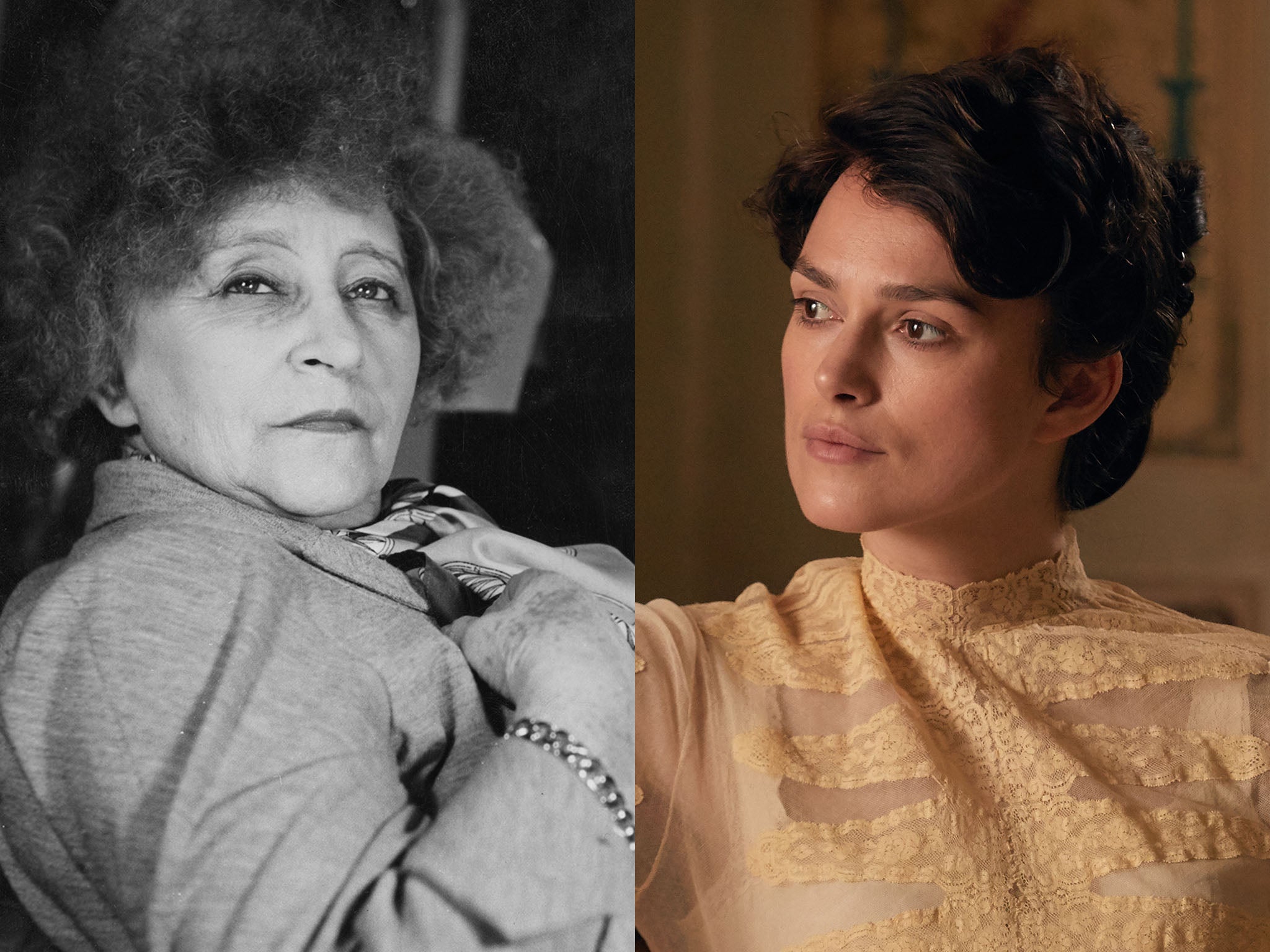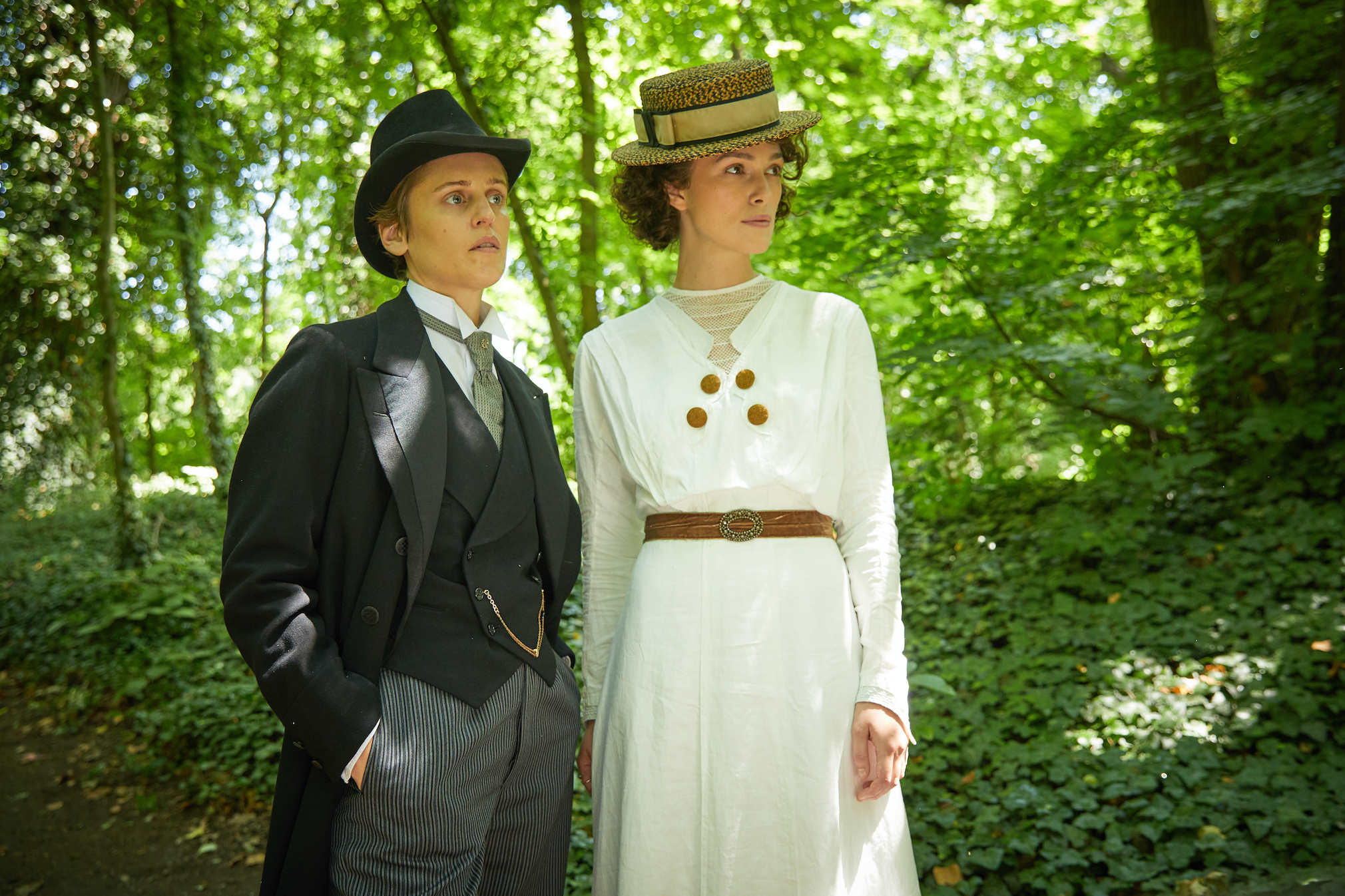Why Colette will open the door to more queer period dramas
Colette's writing is on the school syllabus in France, where Clémence Michallon grew up. But the new film starring Keira Knightley tells a whole different story


Your support helps us to tell the story
From reproductive rights to climate change to Big Tech, The Independent is on the ground when the story is developing. Whether it's investigating the financials of Elon Musk's pro-Trump PAC or producing our latest documentary, 'The A Word', which shines a light on the American women fighting for reproductive rights, we know how important it is to parse out the facts from the messaging.
At such a critical moment in US history, we need reporters on the ground. Your donation allows us to keep sending journalists to speak to both sides of the story.
The Independent is trusted by Americans across the entire political spectrum. And unlike many other quality news outlets, we choose not to lock Americans out of our reporting and analysis with paywalls. We believe quality journalism should be available to everyone, paid for by those who can afford it.
Your support makes all the difference.Claudine à l’École was published 119 years ago – a coming-of-age story about a 15-year-old French schoolgirl named Claudine, it was Colette’s debut novel. Not that you’d have known that by looking at the cover: it bore the name of her husband, Willy.
A century after Claudine took the Paris literary scene by storm, the Oscar-winning writing and directing duo Wash Westmoreland and his husband Richard Glatzer set out to tell the story of its true author. Out this week, Colette stars Keira Knightley in the title role and Dominic West as Willy.
The bare bones of her biography may be familiar, especially to French readers. Sidonie-Gabrielle Colette – to use her full name, although she preferred not to, deciding to go by simply her surname while still a teenager – married Henry Gauthier-Villars when she was 20. Gauthier-Villars, known as Willy, was a prolific writer, and needed to churn out a new book; he suggested his wife try her hand at writing. The result was Claudine à l’École, and the novel was such a hit that Colette continued as a ghostwriter for her husband for many years, producing three further hugely popular Claudine books.
Directed by Westmoreland, who co-wrote the script with Glatzer before his death in 2015, Colette re-tells that literary story – but it also does so much more. The film is a thoroughly researched piece of LGBT history, and honours the many different facets of one of the most pioneering French writers. In 111 minutes, we meet Colette the country girl turned high society trailblazer, Colette the music-hall performer, Colette the polyamorous spouse, Colette the bisexual icon, as well as Colette the influential writer.
In France, she’s part of the school curriculum. But here’s what I, as a 27-year-old French woman educated at state schools in the Paris suburbs, knew about Colette, the writer, going into Colette, the movie: Her husband took credit for her work. Colette liked wearing suits. I knew she liked women, and I knew there was something deemed scandalous about her writing, or her life, or was it both?
This, admittedly, isn’t much – and I promise it’s coming from someone who listened intently during literature classes. But students are typically prompted to reflect on her skilful writing rather than looking at the bigger picture, including how she challenged the boundaries of gender and sexuality. There has been a push over the past couple of years to feature female writers more prominently in the French curriculum, so perhaps today’s pupils are getting a more complete image.
But for my generation and those who came before us, Colette really does tell a new version of Colette’s story – the one French children didn’t learn at school. And in doing so, it shows just how well period pieces can reclaim queer narratives.
Colette isn’t the first period drama to do so, of course. Maurice, James Ivory’s 1987 drama starring James Wilby and Hugh Grant, didn’t get the credit it deserved at the time of its release for portraying gay love in 20th-century England. Sally Potter’s 1992 adaptation of Virginia Woolf’s Orlando, starring Tilda Swinton, was richly lavish as a costume drama while also being strikingly fluid in its approach to gender and sexuality. And in the Oscar-tipped The Favourite, Yorgos Lanthimos’s account of Queen Anne’s court, a lesbian love triangle is the centre of the plot. But at a time when Bohemian Rhapsody has been accused of straight-washing Freddie Mercury’s story (by giving ample screen time to his former fiancée Mary Austin rather than his partner Jim Hutton, changing the chronology of his HIV diagnosis, and altering other aspects of his life and sexuality), it’s heartening to see a biopic doing its subject justice by telling their full story.
Westmoreland and Glatzer started working on a possible Colette movie back in 2001. They travelled to France to meet with Anne de Jouvenel, the niece of Colette’s daughter, who was “very agreeable” according to Westmoreland. He and Glatzer approached independent production companies, trying to get others to see how “revolutionary” Colette’s life story was, but the topic was deemed too niche at the time.

Watch Apple TV+ free for 7 days
New subscribers only. £8.99/mo. after free trial. Plan auto-renews until cancelled

Watch Apple TV+ free for 7 days
New subscribers only. £8.99/mo. after free trial. Plan auto-renews until cancelled
In 2014 came Still Alice, the movie directed by Westmoreland and Glatzer which earned Julianne Moore the Best Actress Oscar for her performance as a professor struggling with Alzheimer’s. By then, Glatzer had been diagnosed with ALS, also known as motor neurone disease. He and Westmoreland were supposed to attend the Academy Awards – they had even got their tuxedos ready – but ended up watching the ceremony from the hospital, smuggling champagne into the intensive care unit to toast Moore’s win.
A few days later, Westmoreland told his husband the Oscar win would be their “springboard” to allow them to work on a passion project. Glatzer, who was experiencing muscle paralysis as a result of his illness, used his toe to type the word “Colette”. He died on 10 May, 2015, less then a month after Moore’s victory. Westmoreland went on a mission to make Colette happen.

Now the film is finally here – and it forms a potent reminder of just how much power period pieces can wield. By shining a fresh light on the past, they have the ability to highlight what had previously remained in the dark, or been actively erased.
As part of his research for Colette, Westmoreland read the works of Columbia University professor Jack Halberstam, a literature and queer theory expert whose 1998 book Female Masculinity explores the possibility of “masculinity without men”. This fuelled Westmoreland’s desire to show how Colette adopted elements of masculinity, including wearing suits and trousers, in order to find her “authentic self”.
One of the most striking scenes in Colette is a blink-and-you’ll-miss-it exchange during which Colette corrects her husband when talking about her lover Missy, the French marquise Mathilde de Morny (played by Denise Gough) who wore suits, had short hair, and sometimes went by Uncle Max. Willy refers to Missy as “she”. Colette interrupts: it should be “he”.
At first glance, the scene seems unbelievably modern – were people already tripping over pronouns in the early 20th century? But the dialogue, it turns out, is based on more than guesswork.
Colette and Missy’s correspondence was published in 2009 in France. French is a strongly gendered language (each noun has a gender; a book, for example, is masculine but the ink you use to print it is feminine); their writing, therefore, gives good insight into Colette and Missy’s use of pronouns. They often used the feminine with each other, but, as Westmoreland has pointed out, Colette would use masculine grammar to talk about Missy “very deliberately and affectionately” – think “chéri” instead of “chérie”.
Period films have predominantly featured straight, white, upper-class characters, but Colette proves that thorough research, and the particular kind of bravery that moves filmmakers to tell a true story – even if it’s not the one written in most history books – can take the genre to new heights.
Join our commenting forum
Join thought-provoking conversations, follow other Independent readers and see their replies
Comments